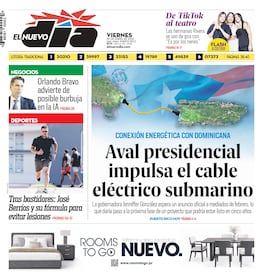Community organization to deal with emergencies is a commendable initiative that combines proactive will with a form of virtuous partnership, reflecting the best of our culture and Puerto Rican essence.
---
Lee este artículo en español.
---
This is demonstrated by the positive results of the educational and community campaign ¡Vecino, vecina! ¿Estás listo? (Neighbor, are you ready?), promoted by the Public Health Trust. This initiative promotes preparedness for emergencies and extreme heat waves, recognizing that in Puerto Rico, neighborly support and collective empathy are fundamental pillars for dealing with unexpected situations. It has already been implemented in communities in Loíza, Lajas, Maricao, Caguas, Carolina, and Utuado.
Climate change, as we tirelessly repeat, continues to be a central factor threatening our daily lives. In addition to the increasing frequency of hurricanes, we are now experiencing more intense, oppressive extreme heat. And if anyone still doubts its impact, just look at the sargassum plague, which, aided by warmer seas, is flooding our beaches and threatening to drive away tourists, who are vital to our ever-fragile economy.
The data confirms this. In Puerto Rico, 2024 recorded one of the highest average annual temperatures in history: approximately 83.3 degrees Fahrenheit in the San Juan area, surpassing all previous records, according to the National Oceanic and Atmospheric Administration (NOAA). Although the data for 2025 is not yet complete, June records indicate a slight drop: from 79.1 degrees Fahrenheit in June 2024 to 78.2 in June 2025. It remains to be seen what the peaks will be in July and the following months.
The Trust’s campaign promotes neighborhood solidarity through an individual plan that includes instructions for preparing an emergency backpack, information on mental health, and heat-related risks. In turn, the community plan collects specific data from each community and proposes strategies for action before, during, and after an emergency.
In Loíza, where the campaign has just been implemented, residents identified their main needs: health, housing, transportation, access to drinking water, and electricity. Working in the field allows for a clearer identification of the most vulnerable sectors. María Virginia Carrasquillo, a health promoter in Piñones, for example, was able to express her concerns. She pointed out the urgency of prioritizing bedridden people, given the increase in cases of diabetes and cancer.
For the authorities, this is a golden opportunity to demonstrate the effectiveness of public institutions when they rigorously fulfill their mission. Arnaldo Cruz, Community Liaison Supervisor for the Public Health Trust—attached to the Trust for Science, Technology, and Research—assures that health promoters have a deep understanding of their communities. He maintains that, although theory is important, in practice it is the neighbors themselves who resolve catastrophic situations, as has been demonstrated since Hurricane Maria.
The tools developed by the Trust team are remarkable. The video that teaches how to prepare an “emotional backpack,” with breathing techniques and fear management, can be useful not only in emergencies but also in everyday life.
A positive current is sweeping across the island. It is based on the energy of organized communities seeking to strengthen emergency preparedness, especially for hurricanes, with a focus on local resilience. This newspaper has reported on initiatives that promote neighborhood networks in vulnerable areas, solar microgrids that guarantee energy after disasters, resilient community kitchens, and multiple training workshops.
In times of crisis, the answer is closer than we think: in solidarity among neighbors and collective action. And that, in Puerto Rico, remains one of our greatest strengths.
---
This content was translated from Spanish to English using artificial intelligence and was reviewed by an editor before being published.


